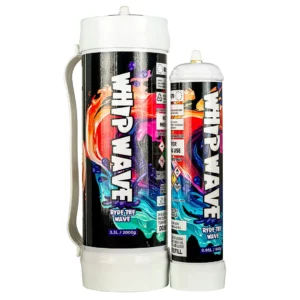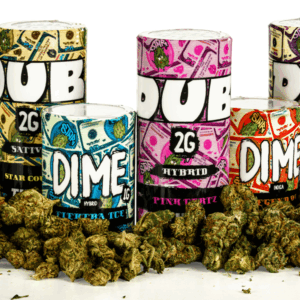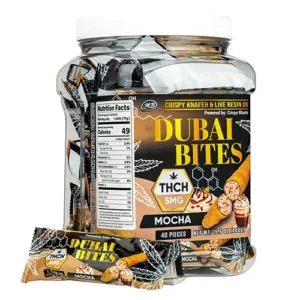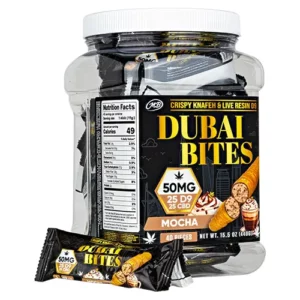As Delta-8 THC products continue to rise in popularity across the United States, the spotlight is also shifting toward safety, transparency, and consumer awareness. While Delta-8 offers a milder psychoactive experience compared to Delta-9 THC, it’s still a cannabinoid that affects the body and mind. That’s why lab testing is not just important—it’s essential. In an industry that’s still largely unregulated, third-party lab testing acts as a safety net for consumers, ensuring that what you’re putting into your body is safe, pure, and exactly what it claims to be.
Let’s explore why lab testing matters, what it should include, and how it protects both consumers and responsible businesses.
What Is Delta-8 THC?
Delta-8 THC (delta-8-tetrahydrocannabinol) is a naturally occurring cannabinoid found in trace amounts in the cannabis plant. It’s chemically similar to Delta-9 THC—the main psychoactive compound in marijuana—but with a few key differences:
Less potent: Delta-8 produces a more mellow, clear-headed high.
Legally ambiguous: Thanks to the 2018 Farm Bill, Delta-8 derived from hemp is technically legal in many states.
Chemically altered: Most Delta-8 on the market is synthesized from CBD or Delta-9 THC, raising questions about how it’s processed.
Because it’s manufactured through chemical conversion rather than extracted in high quantities directly from hemp, the purity and safety of Delta-8 products depend heavily on lab testing.

Why Lab Testing Is Crucial for Delta-8 Products
- To Ensure Product Safety
Unlike naturally abundant cannabinoids like CBD, Delta-8 is typically produced through chemical conversion using acids and solvents. Without proper purification, residual solvents, acids, and byproducts may remain in the final product—posing health risks when inhaled or ingested.
Lab tests can detect:
- Heavy metals
- Residual solvents
- Pesticides
- Microbial contaminants (e.g., mold, bacteria)
- To Verify Potency and Dosage Accuracy
Consumers rely on labels to know how much Delta-8 they’re consuming. Without testing, there’s no way to confirm if a vape cartridge labeled “900mg Delta-8” actually contains that amount—or more. Overstated or understated potency can lead to unwanted effects, especially for new users.
Lab testing provides:
- Accurate cannabinoid content (e.g., Delta-8, Delta-9, CBD, etc.)
- Confidence in dosing and usage
- To Detect the Presence of Delta-9 THC
One major reason Delta-8 is legally allowed in many states is that it’s derived from hemp and contains less than 0.3% Delta-9 THC, as required by federal law. However, sloppy or unregulated production can result in illegal levels of Delta-9, making the product not only unsafe but also unlawful.
Third-party testing ensures:
- Legal compliance
- Protection from unintentionally consuming high-THC products
What to Look for in a Delta-8 Lab Report (COA)
When shopping for Delta-8 products, you should always look for a Certificate of Analysis (COA) from a third-party lab. Here’s what you should expect to find in a trustworthy COA:
Cannabinoid Profile
This section shows the concentrations of cannabinoids like:
- Delta-8 THC
- Delta-9 THC
- CBD
- CBG, CBN, and others
This is your assurance that the product is within legal limits and delivers the promised experience.
Residual Solvent Analysis
Checks for harmful chemicals used during synthesis. Solvents like hexane, acetone, or toluene should be non-detectable or well below safety thresholds.
Heavy Metal Screening
Looks for dangerous metals such as:
- Lead
- Arsenic
- Mercury
- Cadmium
These should all be marked as ND (Not Detected).
Pesticide Testing
Verifies that harmful agricultural chemicals weren’t used during cultivation. Many reputable labs test for up to 50 different pesticides.
Microbial & Mycotoxin Testing
Especially important for edibles and tinctures, this test ensures the product is free from mold, bacteria, and fungi.
The Dangers of Unregulated Products
Unfortunately, the booming Delta-8 market has attracted a mix of reputable companies and fly-by-night operations looking to make a quick buck. Products without lab testing may be:
- Contaminated with toxic byproducts
- Mislabelled in terms of potency or ingredients
- Illegally formulated with high Delta-9 THC
There have already been multiple reports of adverse reactions linked to untested or poorly made Delta-8 products. These range from nausea and anxiety to more serious side effects like hallucinations or respiratory issues from bad vape hardware.
How Lab Testing Builds Trust Between Brands and Consumers
A transparent brand that provides easy access to third-party lab reports is making a statement: We care about your health and we have nothing to hide.
For customers, this transparency:
- Builds trust in the product
- Encourages repeat purchases
- Reduces anxiety around trying a new cannabinoid
For brands, it:
- Differentiates them in a crowded market
- Reduces liability
- Increases brand credibility and longevity
Red Flags to Watch Out For
When evaluating a Delta-8 product or brand, keep an eye out for these warning signs:
- No COA available: If lab results aren’t on the website or package, it’s best to steer clear.
- In-house testing only: Results should come from independent, accredited labs, not the manufacturer.
- Vague or incomplete COA: A good COA will be detailed and cover all the categories discussed above.
- Outdated lab reports: Results should be updated regularly, ideally for each batch.
A Consumer’s Responsibility: Be Informed
As a consumer, especially in the cannabinoid space, you should take the time to:
- Research the brand: Read reviews, check their testing policy, and see if they mention third-party lab partners.
- Read the lab report: It might look scientific, but many brands offer summaries or customer-friendly versions.
- Ask questions: Reputable companies should have customer service teams that can explain what’s in their product and why it’s safe.
Final Thoughts: Demand Better, Stay Safer
Delta-8 THC is an exciting and promising cannabinoid with real benefits—from relaxation to stress relief—but the responsibility for safe consumption lies heavily on both manufacturers and consumers.
Lab testing isn’t just a checkbox; it’s a critical step in ensuring that Delta-8 products are safe, legal, and effective. As consumers, we deserve transparency. As businesses, providing third-party lab reports is not only ethical—it’s necessary for long-term success.
If you’re considering trying Delta-8, make lab testing your first priority—because your health is too important to gamble on an untested product.










